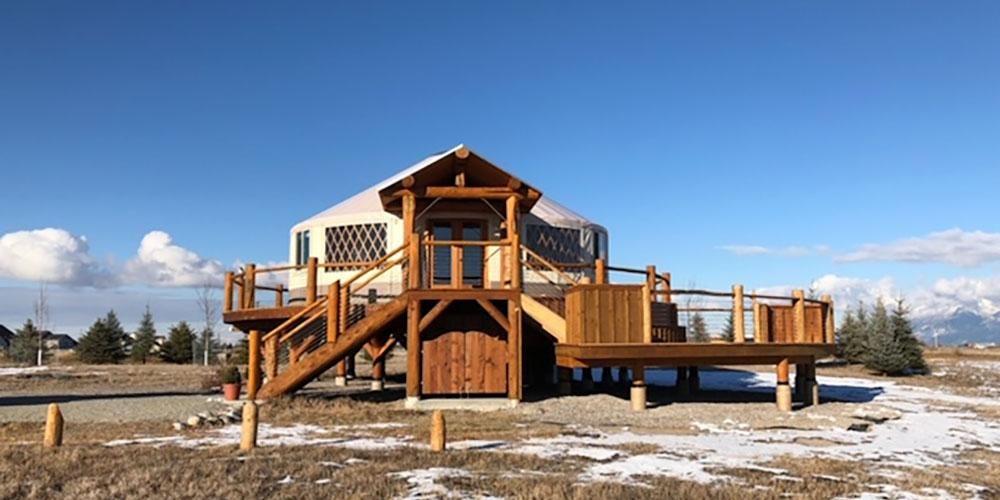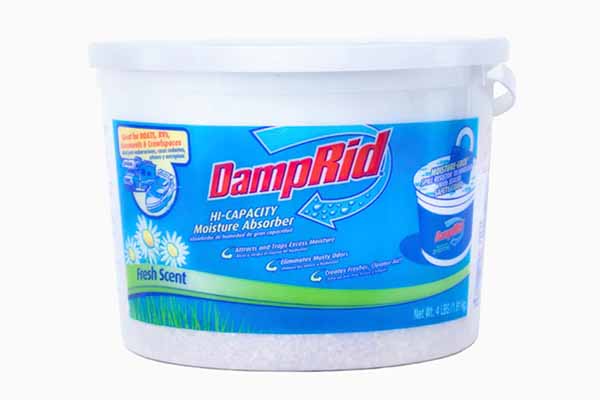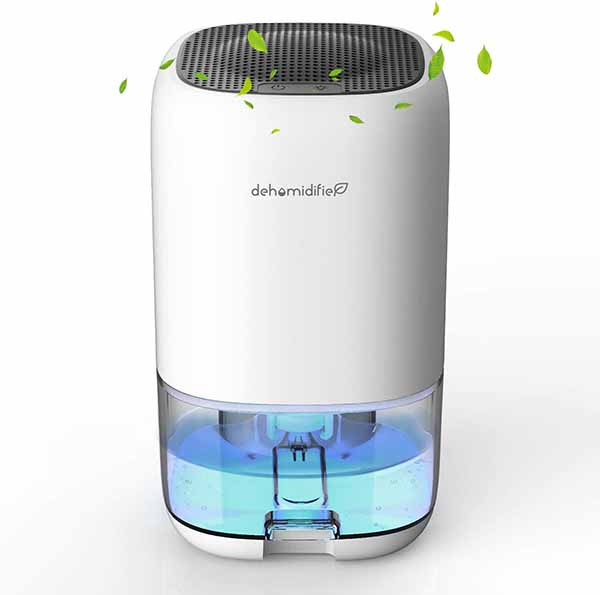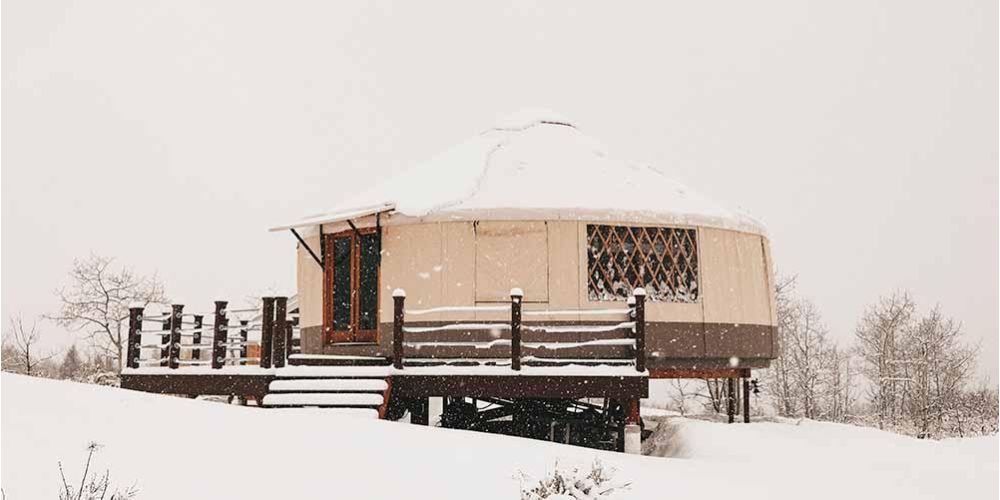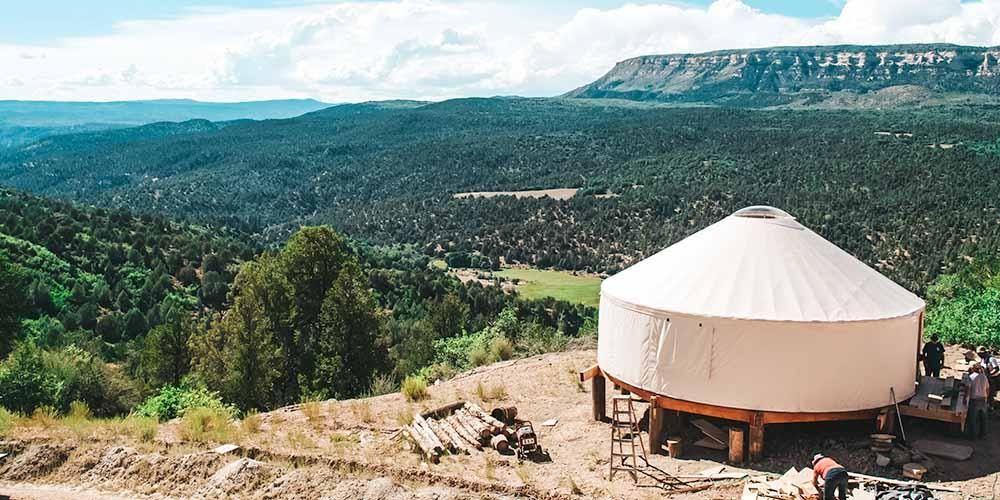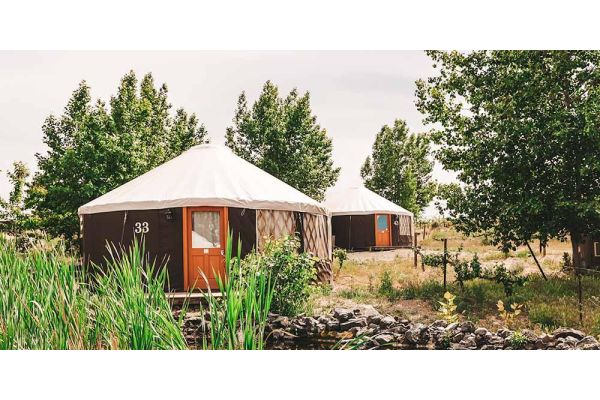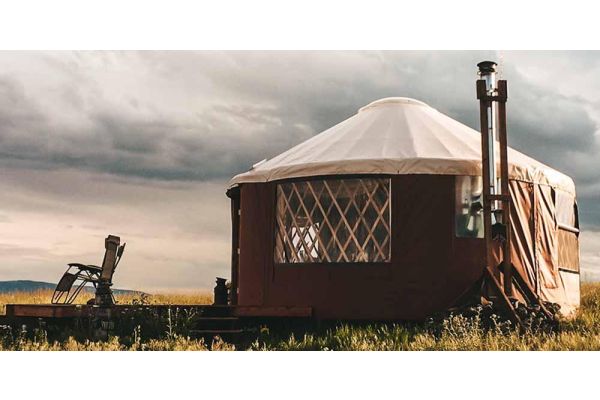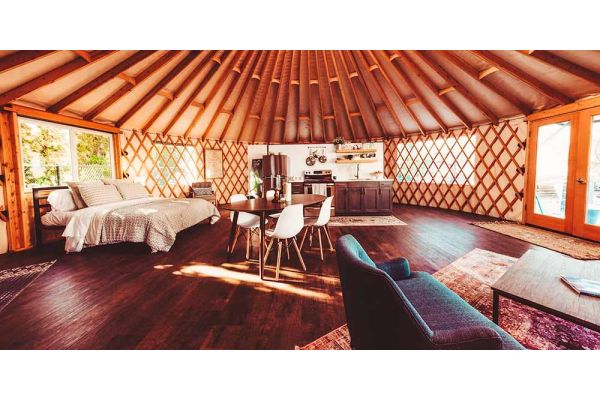Understanding Yurt Condensation and Its Causes
Yurts are well-known for creating comfortable living solutions year-round. In some cases, yurt dwellers who live in cold or wet climates could experience moisture from condensation in the yurt. The moisture in your yurt can form from the fog on the interior of your window, humid air, or moisture inside your yurt dome. The most common cause of condensation within a yurt is lack of ventilation. Our team is here to provide our knowledge and solutions to eliminate moisture build-up in your yurt.
How Yurt Condensation Forms: Common Causes
Often, condensation forms when excess moisture collects inside your yurt. Excess moisture, paired with poor air circulation, can lead to mold and mildew over time. Due to the round architecture of yurts, condensation is more likely to build up from bathing, cooking, and heating your yurt. It’s important to consistently check your windows, interior walls, ceiling, and places with little airflow inside your yurt. Perhaps you have a room or loft in the yurt that you don’t often use? You will want to periodically open the door or window to that space to create airflow.
Tips for Keeping Your Yurt Dry: Ventilation, Insulation, and More
- The first step to handling yurt condensation is to trace the location the moisture is coming from. Frequently checking the spots listed above will help combat excess moisture over time.
- The best way to combat yurt condensation is frequent airflow. If you live in colder climates, you will want to crack a window or open your yurt dome occasionally to vent moisture. If you get into this habit regularly, large fluctuations in temperature are less likely to leave condensation in the future.
- Consider products like Damprid or de-humidifiers to reduce condensation.
4. Rainier Outdoor manufactures yurt walls with heavy-duty fabrics designed to be waterproof, mildew resistance, and UV resistant. Our yurt fabric acts as an additional barrier to block any humidity that manages to enter the yurt. The materials provided in your yurt purchase are fabricated with high-quality materials and longevity in mind.
5. Investing in a yurt with proper insulation will save you in the long run. Our team offers yurt insulation that is proven to combat condensation. A popular form of yurt insulation is a LOW-E Radiant Heat Barrier type insulation that NASA researched for astronauts in space. Rainier Outdoor offers a single-layer and double-layer form of this NASA-developed material. When you properly insulate your yurt, you're less likely to experience mildew or mold growth within your yurt home. Even with insulation, don’t forget to ventilate your yurt frequently, especially in damp environments. Check out our blog 'Facts on Yurt Insulation' for more information.
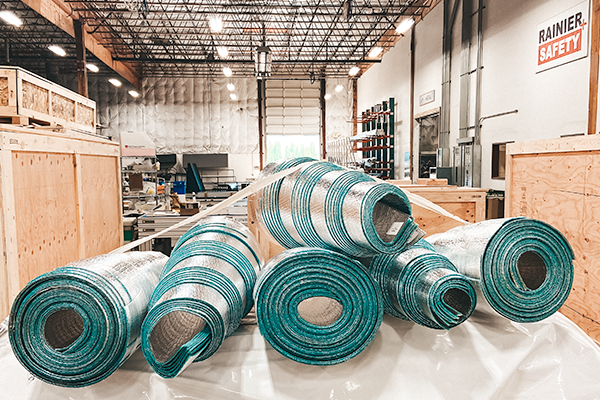

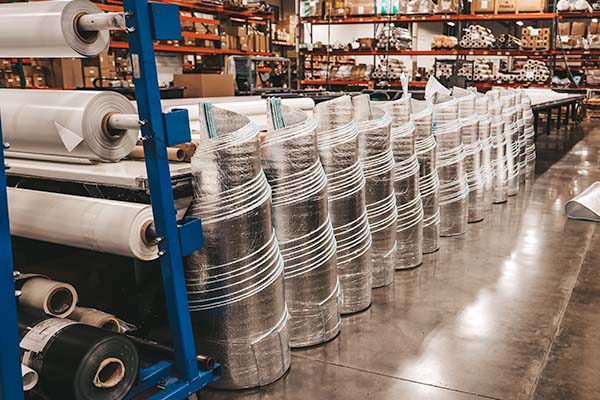

Additionally, if you discover humidity stains or black mold on any surface of your yurt, be sure to thoroughly clean the area with a diluted mixture of water and bleach or water and vinegar.
Contact us to learn more about our handcrafted yurts, canvas cottages, canvas tents, and tipis! Follow us on Instagram to find yurt inspiration and designs, glamping off-the-grid, and updates from our yurt experts.
FAQs
What causes condensation in yurts?
Condensation occurs when warm, moist air inside the yurt meets the cold surface of the walls or roof, causing moisture to form.
How can I prevent mold in my yurt?
Prevent mold by improving ventilation, using a dehumidifier, and ensuring the yurt is properly insulated to reduce condensation.
What are the best ways to improve ventilation in a yurt?
Installing roof vents, windows, and using fans can help improve airflow and reduce humidity.
Does yurt insulation help with condensation?
Yes, insulation helps regulate interior temperatures, reducing the conditions that lead to condensation.
How do dehumidifiers help reduce yurt moisture?
Dehumidifiers remove excess moisture from the air, helping to control humidity and prevent condensation and mold growth.
Are yurts waterproof?
Yes, yurts can be waterproof when made with the right materials. Modern yurts typically use durable, water-resistant fabrics like vinyl-coated polyester or marine-grade canvas for the roof and walls. Additionally, applying waterproof coatings and ensuring proper sealing of seams can enhance their water resistance.

